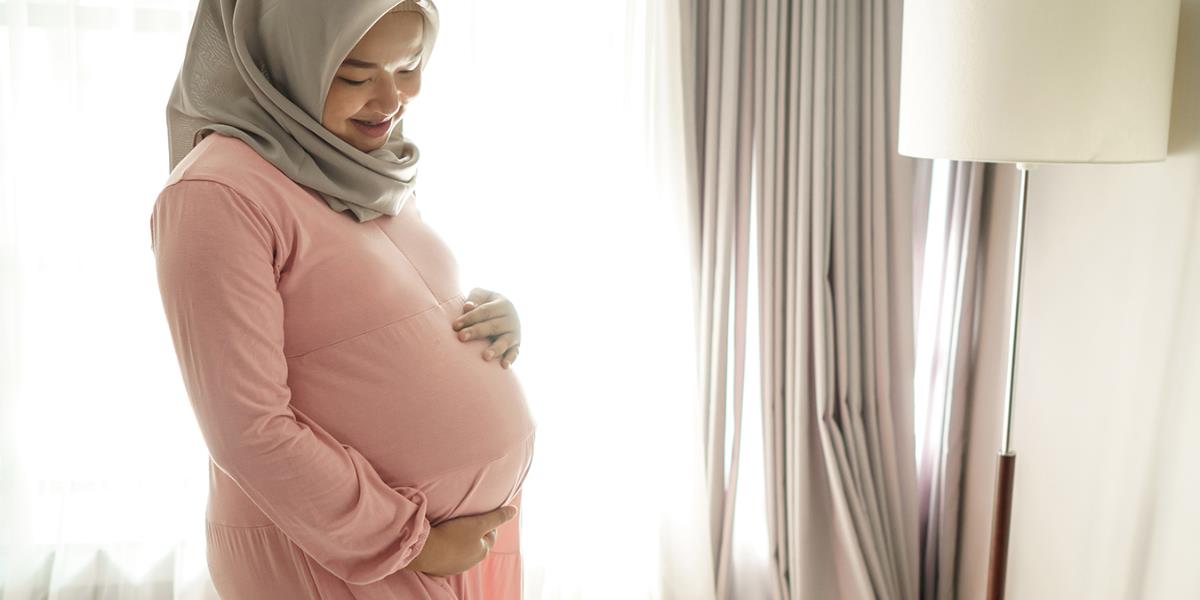3 Rayyanza Sandal Clip Collection, Some of Them Cost Millions
These cute baby flip flops can be more expensive than your sandals.

Dream- The moment of childbirth is highly anticipated. It is the first time to see the baby being born into the world.
Sometimes, the wait for labor can be very long. Days go by, but there are no signs of labor. If the fetus is mature enough and the mother is in good condition, the doctor may recommend labor induction to expedite the birth.
Induction is a process to stimulate uterine contractions before natural contractions occur. However, induction should not be done indiscriminately as it can pose risks to pregnant women.
So, what conditions may require pregnant women to undergo labor induction? Let's find out, Dream friends.
1. Preeclampsia or Eclampsia
During pregnancy, many pregnant women experience a serious complication called preeclampsia or eclampsia. Preeclampsia is a health complication related to high blood pressure.
It can cause severe headaches, nausea, vomiting, and changes in vision. If left untreated, preeclampsia can develop into eclampsia, a severe health complication that involves seizures and can lead to heart disease and stroke.
Therefore, preeclampsia is the main reason why pregnant women need to undergo induction to expedite delivery.
This condition is a pregnancy complication in which the placenta detaches from the uterine wall before the birth process. Placental abruption disrupts the supply of nutrients and oxygen, posing a risk of death to the baby.

Meanwhile, for pregnant women, placental abruption can cause severe bleeding. Considering how risky this condition is for both the mother and the baby, induction is a possible course of action.
Oligohydramnios is a medical condition that describes a low level of amniotic fluid. However, amniotic fluid is beneficial for regulating the baby's temperature and movement in the womb for optimal development.

If a pregnant woman experiences this condition, the doctor usually recommends amnioinfusion to increase the amount of fluid in the womb or induction. This is because insufficient amniotic fluid can lead to premature birth, miscarriage, and even death.
If the membranes rupture at 37 weeks and beyond, the doctor will suggest induction. This is because when the membranes rupture, the baby is at risk of infection. Infections can be fatal and cause the baby's death.
5. Post-term Pregnancy
If the estimated due date has passed for more than a week, the doctor usually recommends induction. This is because pregnancies that exceed 42 weeks are at high risk of reduced oxygen supply to the baby, macrosomia (baby weighing more than 4 kilograms), postmaturity syndrome, and stillbirth. Therefore, induction is chosen to ensure the baby is born healthy.
Report by Hany Puspita Sari/ Source: Baby Chick
Dream - Parents often prepare everything their little one needs during pregnancy, such as diapers, clothes, and a crib. Not only physical changes, but there are also psychological changes that mothers need to prepare for. For first-time mothers, be prepared. Several complaints may arise.
These complaints are generally normal, but in certain conditions, mothers need help to alleviate them. This is to ensure that the body and mind feel relaxed and can better take care of the baby. What are the complaints that may arise?
1. Body Aches
Almost all women experience body aches after giving birth. This is caused by the energy exerted during childbirth and the contractions of the uterus to return to its original size.
These body aches can be relieved in various ways, such as receiving postpartum massage, soaking in warm water for 20 minutes, gradually being active and moving around, and engaging in light exercise.
2. Swelling
During pregnancy, a woman's body produces about 50% more blood and other fluids to support the baby's growth. It is not surprising that hormonal changes or fluctuations can cause edema or swelling in the legs, ankles, hands, face, and other areas of the body.
This condition can be managed by avoiding salty foods and opting for low-sodium options. Additionally, consuming potassium-rich foods such as fruits and vegetables can help. If extreme swelling causes discomfort, Dream friends can try moving the legs throughout the day, avoiding sitting or standing without movement for 30-60 minutes, and using cold compresses to reduce swelling.
Vaginal discharge, also known as lochia, is a condition where the body expels mucus, blood remnants, and benign tissue from the uterus after childbirth.
Normal lochia lasts for about a month or longer due to the changes in the size of the uterus in the first week after childbirth. For Dream friends experiencing lochia, it is recommended to use sanitary pads instead of tampons as they pose a higher risk of infection and irritation.
4. Breast Enlargement
Swelling or enlargement of the breasts after childbirth is normal but can be painful. This is because the breasts become red, swollen, and painful for one or two days after giving birth. After that, the swelling will subside, but the breasts will start to sag due to stretched skin.
Moreover, postpartum also causes leaking of breast milk for several weeks. If the mother is breastfeeding or pumping, she can try taking a warm shower and gently massaging the breasts to help with milk flow. If the mother is not breastfeeding or pumping, she can try cold compresses for swelling and use a comfortable bra to reduce pain.
5. Stretch Mark
Stretch mark is a problem that often occurs after childbirth. The cause is rapid weight gain or genetic factors. Stretch marks are thin lines of red, purple, and dark brown often found on the stomach, hips, breasts, and buttocks.
Researchers have found that stretch marks cannot be prevented, but their severity can be reduced by using moisturizers during pregnancy. This condition will fade in about a year.
Report by Hany Puspita Sari/ Source: Parents
Cobain For You Page (FYP) Yang kamu suka ada di sini,
lihat isinya
These cute baby flip flops can be more expensive than your sandals.
The combination of wood and white is so sweet.
Recognize signs of a disappointed wife with husband's attitude along with the solutions to deal with it!
Learning to fast is certainly not easy for children.
Ensure that children feel comfortable and do not experience complaints during the journey.
Could be an option to make the house not too bright and give a spacious impression.
Who would have thought Indra could match his daughter's dance so well.
If the status of their children and grandchildren is below their own, it can be elevated to the same level as their parents.
This terrace design idea is simple and makes you feel at home.
Do not let parents speak and mention the gifts that we have given to children. Especially to demand and ask them to 'pay it back'.
The kitchen in the TNI official's house amazed many people because of its arrangement
Both are trained to become hafiz and hafiza.